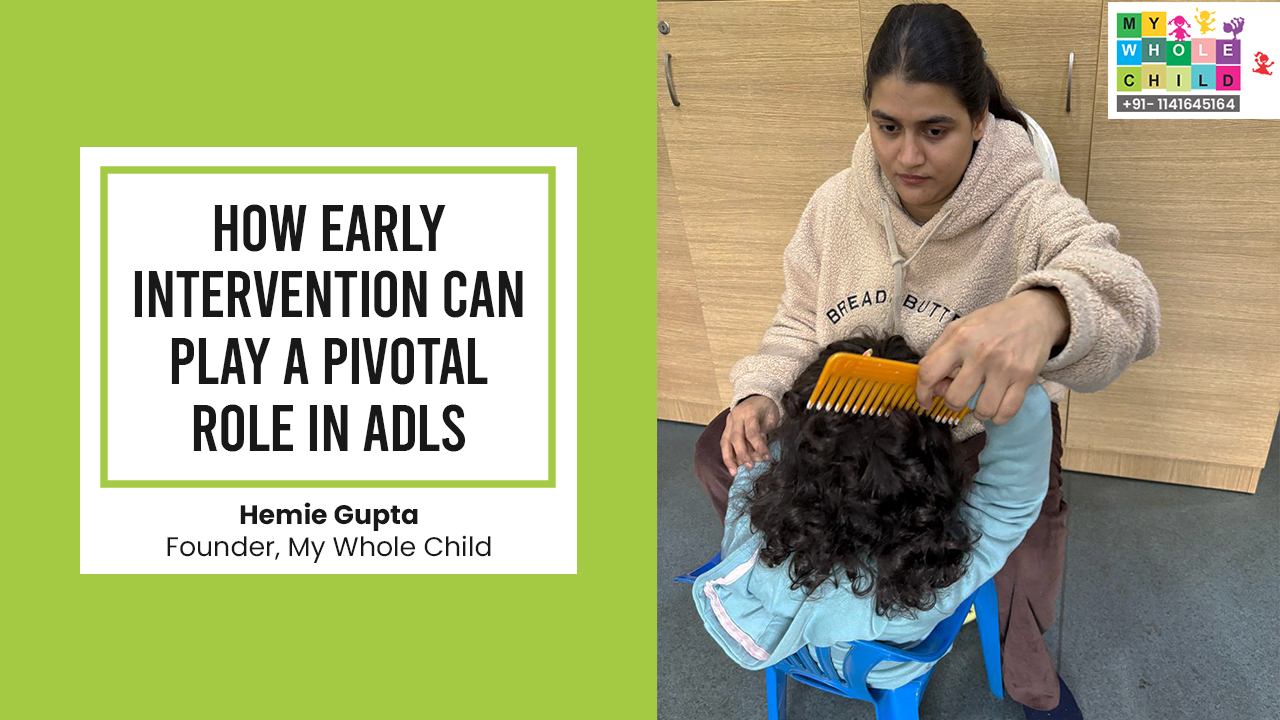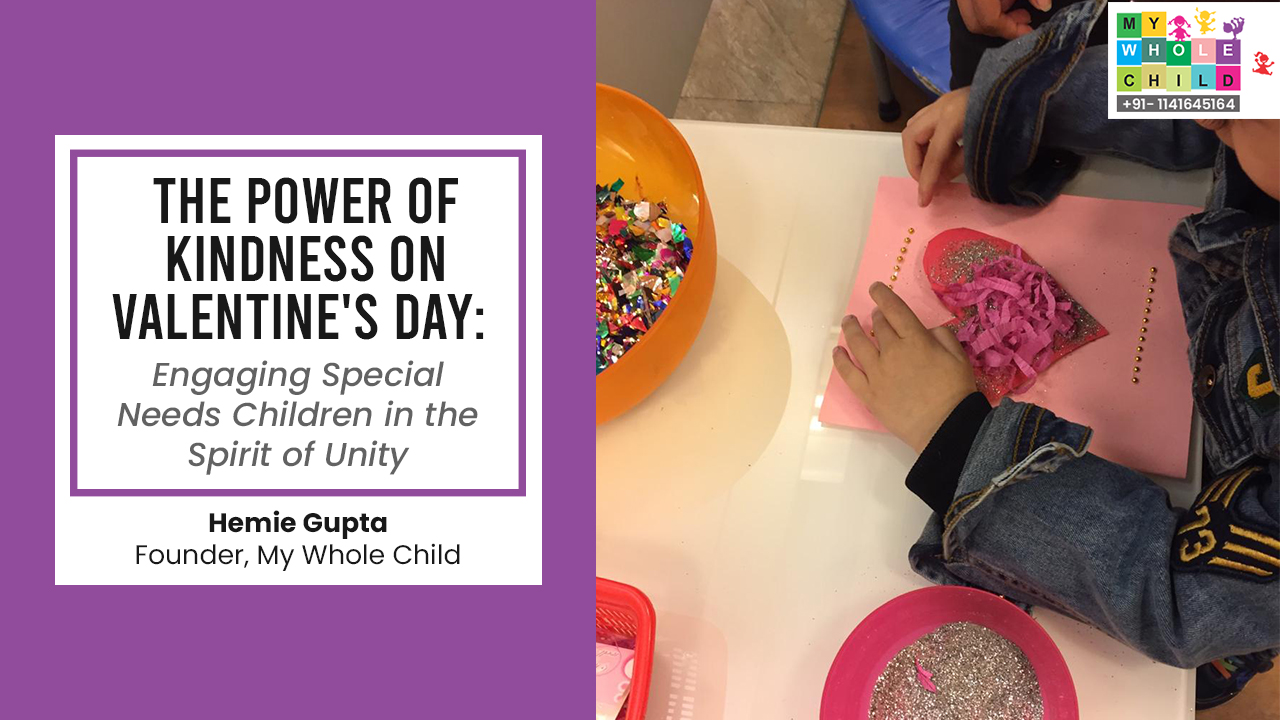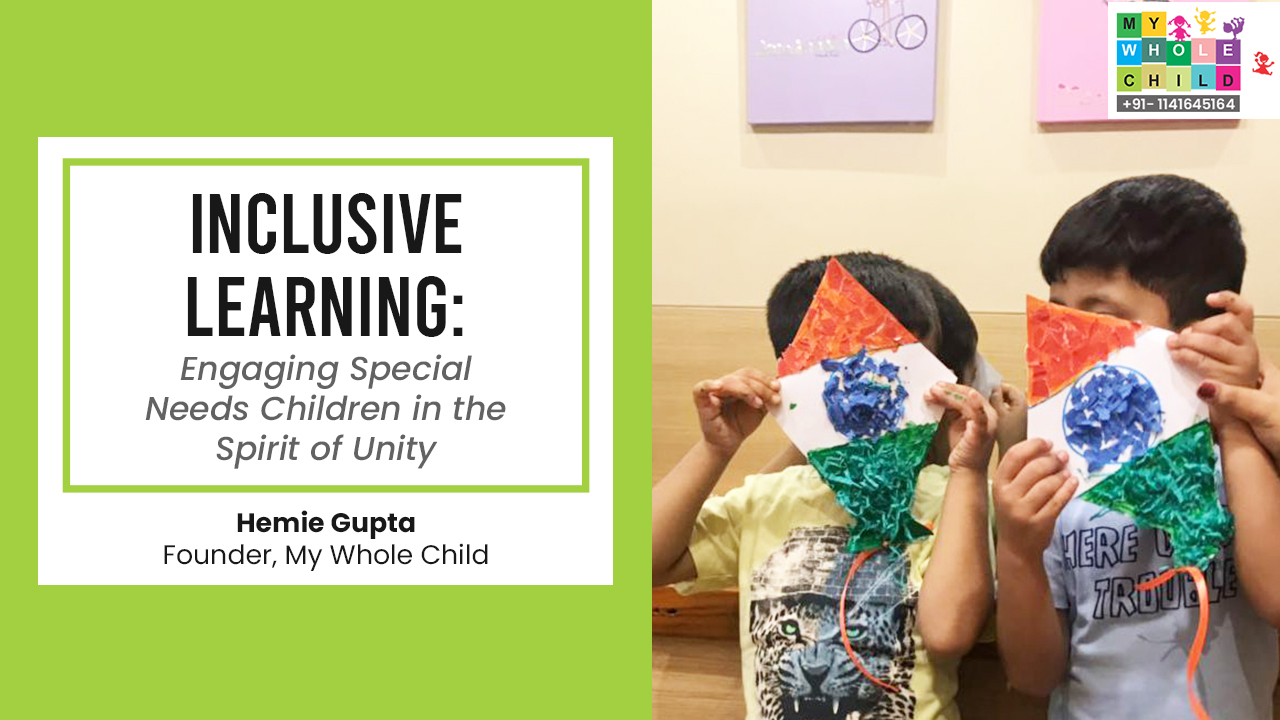mwcgk2@gmail.com S-Block, Gurudwara Nanaksar Premises, Greater Kailash-II, New Delhi-48
How early intervention can play a pivotal role in ADLs
admin - January 8, 2025
Early intervention is crucial when it comes to supporting a child’s Activities of Daily Living (ADLs). ADLs are basic tasks that are necessary for independent functioning, such as dressing, feeding, bathing, toileting, grooming, and mobility. For children, these skills are foundational for their overall development and well-being.
Promotes Skill Development :Early intervention helps children develop the physical, cognitive, and emotional skills needed for ADLs. By identifying and addressing developmental delays, it can guide children through the process of acquiring these essential skills at the right time.
Enhances Confidence and Independence: When children learn ADLs early on, they develop a sense of competence and self-esteem. Mastering simple tasks like feeding themselves or brushing their teeth boosts their confidence and encourages further independence as they grow.
Improves Social Integration: Children who can successfully manage ADLs are more likely to interact comfortably with peers and participate in social activities. For instance, being able to dress themselves or use the toilet independently helps children engage in group activities, school settings, and playdates with fewer limitations.
Creates a Foundation for Lifelong Independence: Mastery of ADLs is not only about independence in childhood but also about laying the groundwork for the future. Children who can take care of themselves in these basic areas will be better prepared to handle life challenges as they grow into adulthood.
The earlier the intervention, the more likely a child will develop the necessary skills for autonomy, independence, and overall success in life. Early intervention is not just about teaching ADLs but also providing children with the tools they need to feel confident, competent, and prepared to face future challenges.
Latest Posts

Embracing Uniqueness: A Journey of Love and Learning
March 22, 2025
Bringing Color to Every Life: Holi as a Festival of Unity
March 14, 2025
Being a Woman—I am a lot of things together
March 8, 2025

